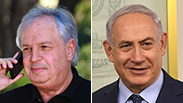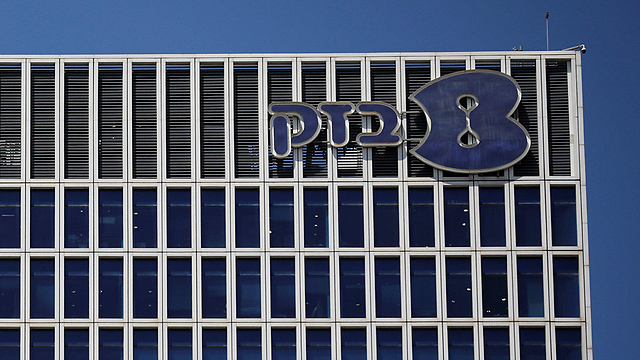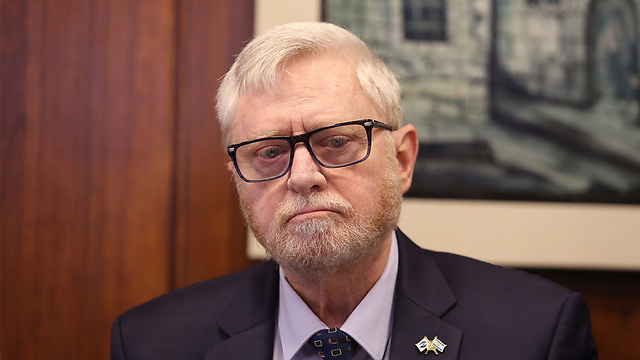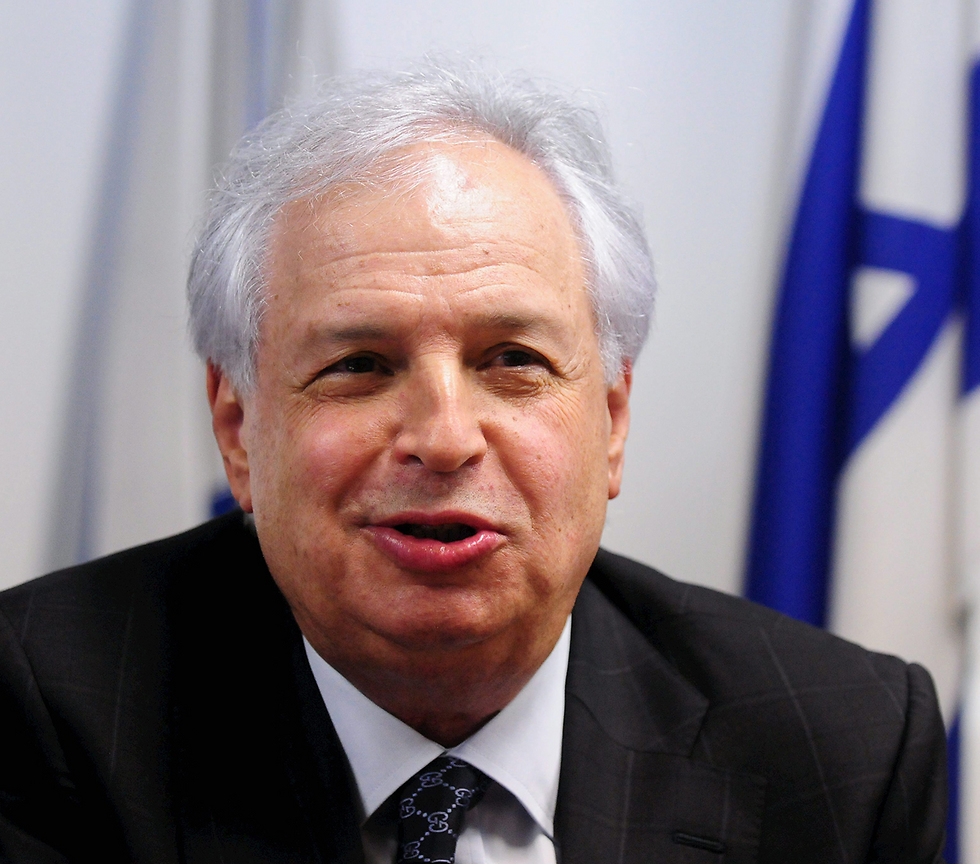The State Comptroller issued a report Wednesday on the conduct of the Ministry of Communication towards Israeli telecommunications giant Bezeq during Prime Minister Benjamin Netanyahu's tenure as head of the ministry. The report comes as a criminal investigation is underway into Bezeq primary shareholder, Shaul Elovitch.
"The Ministry of Justice must exhaust its examination into the question of whether, prior to the formation of the conflict of interest arrangement, Prime Minister Benjamin Netanyahu and Shaul Elovitch discussed the issues under the purview of the Ministry of Communications and the minister in charge.
"Without exhausting the examination, the fear that these issues were discussed cannot be allayed and it would be impossible to examine the implications which Prime Minister Netanyahu was involved in as part of his position as minister of communications prior to the formulation of the arrangement," wrote State Comptroller Yosef Shapira.
At the beginning of the current government, Shapira addressed Netanyahu, all government ministers and deputy ministers in a letter clarifying their duties according to the rules on disclosure issues and conflicts of interest.
In the letter, Shapira also included a questionnaire in order to identify possible conflicts of interest. Netanyahu received a copy of the letter as well the questionnaire in May 2015, while he was still holding the communications portfolio—which he only recently surrendered.
Additionally, at the end of May 2015, Shapira informed Netanyahu that press officials had approached the comptroller's office, claiming that Netanyahu's representatives had significant business ties in the communications field.
Shapira then asked Netanyahu to discuss the claims and added that if Netanyahu has additional connections that relate to his capacity as minister of communications, he must provide details according to laws on disclosure.
In October 2015, it was determined that Netanyahu had a conflict of interest regarding his capacity as minister of communications. The determination noted that lawyers David Shimron and his brother-in-law Yitzhak Molcho maintain "special" relationships with Netanyahu, yet any clients in their firm that are in the field of communications are handled by another partner.
As such, Shapira wrote that it was determined that under these circumstances, there was no reason to prevent Netanyahu from having dealings with Shimron and Molcho's law firm, as long as it did not create a conflict of interest with the firm's other clients.
Following an article in Haaretz that same month, requests were directed to the attorney general to examine whether the prime minister is in a conflict of interest in his tenure as minister of communications, among other reasons due to his personal relationship with Elovitch.
Elovitch, according to the comptroller's report, has significant holdings in the communications market—he is the primary shareholder of Eurocom Holdings Ltd., along with his brother, who holds a small portion. In turn, Eurocom Communications Ltd. is almost exclusively owned by this company, which through a chain of companies also controls Bezeq.
As such, the article claims that Netanyahu's connection to Elovitch may raise concerns about a conflict of interest in Netanyahu's role as communications minister.
The legal adviser to the Prime Minister's Office was asked to clarify with Netanyahu whether he was in personal contact with Elovitch. In response, she said, "the prime minister has been in friendly relations with Elovitch for 20 years and they maintain social ties between them."
She also reported that the prime minister met with Elovitch once every few months and the meetings are of a social nature and are attended by their wives and usually by other friends. She did however emphasize that the prime minister did not discuss professional issues with Elovitch.
The adviser's response also made it clear that Netanyahu and Elovitch have no economic connections and that the prime minister had received no donations, money or loans from him.
The legal adviser added that Netanyahu wanted to clarify that his decisions as minister of communications were not influenced by his personal acquaintance with Elovitch and that all decisions were made in accordance with the recommendations of professionals.
In June 2016, more than a year after Netanyahu took over the media portfolio, the attorney general arranged another conflict of interest agreement for the prime minister, this time about his social ties with Elovitch.
The agreement stated that in order to prevent claims of a conflict of interest and for reasons of public visibility, Netanyahu announced that he would be willing to avoid dealing with matters relating to Elovitch and the companies under his control.
In a joint conversation between representatives of the attorney general and representatives of Netanyahu, two conclusions were agreed upon: (1) The Minister of Communications must "refrain from dealing with matters relating to companies in the Bezeq Group and matters affecting them materially"; (2) The Minister of Communications must "refrain from dealing with areas in which Bezeq is a monopoly, or in areas where it is in an exclusive (or almost exclusive) field with another company in the HOT group."
It was determined that the powers of the minister of communications in these matters would be transferred to another minister, which occurred in July 2016, when they were transferred to Minister Tzachi Hanegbi.
The comptroller's report revealed that in April 2016, the senior professional advisor to the director-general of the Ministry of Communications had compiled a list of issues that the prime minister had dealt with since he took office, either directly or indirectly.
The issues included: supervision procedures for the Bezeq Group, a request to approve the sale of Alon Cellular's activity to Pelephone, extension of the authorization to approve work permits for Bezeq employees, approval of a change of holdings for Yes (owned by Bezeq), a yes licensing amendment and several payment demands from Bezeq for various services.
The comptroller noted that the issues listed were not included in the report of the Office of the Director General from August 2016 to the State Comptroller's Office, even though they concern the reform of the fixed-line communications market.
An investigation conducted by the State Comptroller's Office and the Ministry of Justice in February 2017 revealed that even though the Prime Minister's Office had prepared a list of issues relating to Bezeq that Netanyahu had been involved in since he took office, it was not forwarded to the Ministry of Justice.
The State Comptroller's Office noted that the list of issues dealt with by Netanyahu prior to the formation of the conflict of interest arrangement prepared by the Ministry of Communications should have been brought to the Ministry of Justice's attention by the Ministry of Communications, together with any other relevant material necessary for formulating the arrangement.
Without looking at the list, the comptroller wrote, it may be difficult to determine the proper balance regarding the applicability of the arrangement to past decisions.
Shapira stressed that "the outcome of the situation creates serious difficulty. This is a situation in which a personal relationship between the prime minister and a central figure in the realm of communications was not reported on from the beginning; the prime minister has held the communications portfolio since November 2014, was actively involved in several issues that directly or indirectly affect Bezeq (until the beginning of the clarification of the subject of conflict of interest).
"The Ministry of Justice did not have a full picture of the extent of the Prime Minister's involvement in matters related to Bezeq; the prime minister's response to the Justice Ministry prior to the formulation of the arrangement did not negate the existence of talks between Netanyahu and Elovitch regarding matters in which the prime minister was involved as minister of communications."
In conclusion, wrote Shapira, "This report indicates the need to sharpen the provisions relating to the declaration of full ties by ministers when they take office; The need for full public transparency regarding the existence of an examination of the implications of conflict of interest arrangements for past decisions and their results; And the need to examine in principle the issue of the implications of a conflict of interest arrangement of a minister and a director appointed under circumstances in which a significant factor in the appointment is a high level of trust between the two."





















